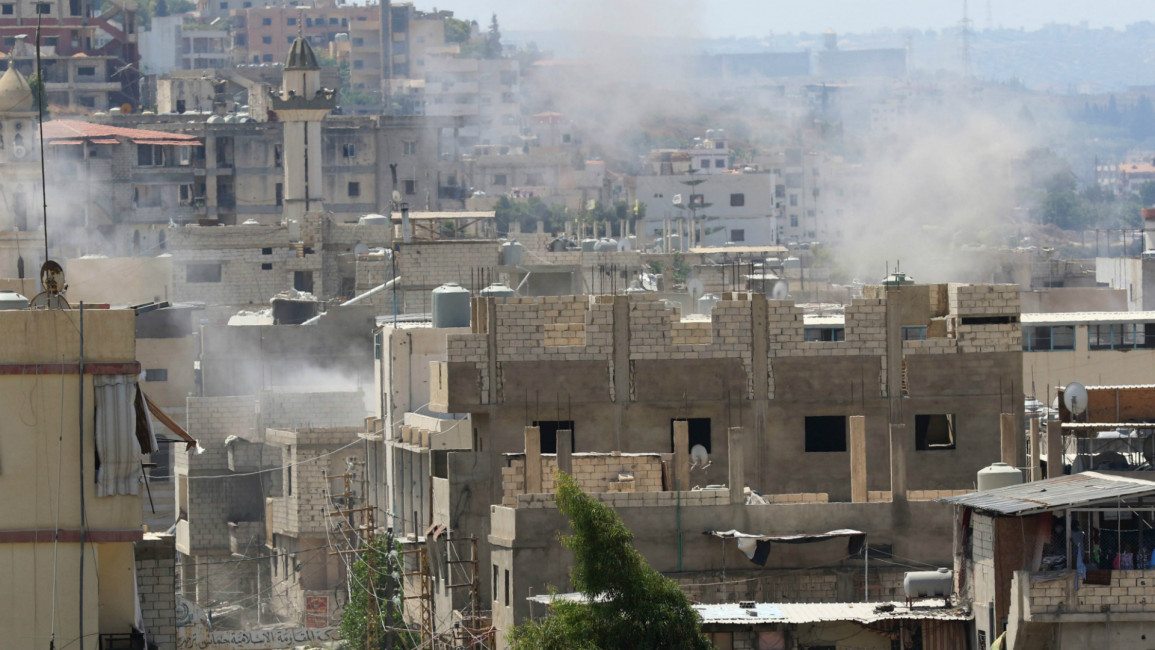Palestinian refugees protest crackdown on 'illegal workers' in Lebanon
Residents of the Ain al-Hilweh refugee camp took to the streets for a second day to denounce the labour ministry's move.
They burnt tires at the camp's entrance to stop authorities from coming in, local media reported.
The protests come after labour minister Camille Abousleiman called on Lebanese employers to ensure they did not employee refugees without legal permits to work.
"Lebanon is suffering from a sharp crisis because of illegal foreign workers, especially illegal Syrian labor," a ministry statement said.
"The number of refugees in Lebanon is close to one-third of the Lebanese population, and hundreds of thousands of the refugees are competing with Lebanese citizens in various fields," the statement said.
"Their work is no longer limited to agriculture and construction. They have moved their companies and enterprises to Lebanon, and have opened thousands of illegal businesses. This is an equation that no country in the world can tolerate."
The ministry has shut down dozens of shops and fined others over illegal workers. The majority of those caught were Syrian workers, not Palestinian, Abousleiman told local media.
The minister met with the Palestinian ambassador on Monday to discuss measures to ensure Palestinian refugees can obtain work permits.
Ain al-Hilweh is the largest Palestinian refugee camp in Lebanon.
It had a population of over 70,000 Palestinian refugees but swelled to nearly 120,000, as a result of an influx of refugees from Syria since 2011.
Lebanese authorities estimate that 1.5 million Syrians fled to Lebanon since the beginning of the civil war in 2011.
Activists say authorities are trying to drive Syrians out and pressure them to return by making their lives unbearable.
"There is a new trend now with people declaring the war in Syria has ended and calling for the return of refugees, but refugees are pushed to the point where return is neither safe nor voluntary," Rouba Mhaissen, the director of the charity SAWA for Aid and Development told The New Arab last week.
The recent anti-refugee sentiment comes after Lebanese President Michel Aoun recently claimed that "the wave of Syrian displacement has produced negative repercussions that affect all Lebanese sectors, saying the return of refugees "can't wait for a political solution to the Syrian crisis".
Follow us on Twitter: @The_NewArab


![President Pezeshkian has denounced Israel's attacks on Lebanon [Getty]](/sites/default/files/styles/image_684x385/public/2173482924.jpeg?h=a5f2f23a&itok=q3evVtko)



 Follow the Middle East's top stories in English at The New Arab on Google News
Follow the Middle East's top stories in English at The New Arab on Google News


